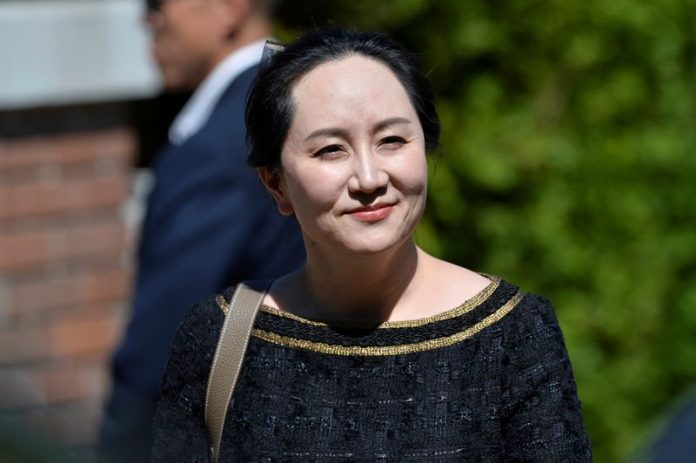The Canadian Security Intelligence Service warned that the arrest of Huawei Technologies Co.’s chief financial officer in Vancouver on a U.S. extradition request would have global political ramifications, according to new documents that reveal the spy agency’s involvement in the case for the first time.
In a redacted Dec. 1, 2018 memo, CSIS said it was advised by the U.S. Federal Bureau of Investigation of plans to arrest Meng Wanzhou when she arrived on a flight to Vancouver later that day. The memo was among documents released late Thursday by the Federal Court in Ottawa after a request from Meng, who’s argued the extradition was politically motivated.
“The arrest is likely to send shockwaves around the world,” the agency said, noting that Meng was also the eldest daughter of Huawei’s billionaire founder, Ren Zhengfei. Canadian police handling the arrest recognize “the highly political nature of the arrest,” the memo said.
Meng is seeking to have a Canadian court dismiss the U.S. extradition request, arguing that her arrest was conducted unlawfully. She accuses Canadian police, border officials and the FBI of coordinating secretly to question her for hours and obtain passwords to her electronic devices before formally charging her.
The latest memo also notes that the FBI didn’t attend Meng’s arrest “in an effort to avoid perception of influence.”
In filings to the Ottawa court seeking further disclosure, Meng accuses Canada of “coordinated state misconduct,” describing the handling of her arrest as “so serious” that it constitutes one of the clearest cases of an abuse of process and justifies ending the extradition process.
Meng has emerged as the highest-profile target of a broader U.S. effort to contain China and its largest technology company. The U.S. seeks to try Meng on charges of defrauding banks by tricking them into conducting transactions that violated American sanctions on Iran. China has accused Canada of abetting “a political persecution” against Huawei and Meng. While the pursuit of Meng by U.S. authorities predates the current administration, U.S. President Donald Trump muddied the legal waters early on when he indicated he might try to intervene in Meng’s case to boost a China trade deal.
Relations Strained
“This planned event will be of great consequence internationally and bilaterally,” the spy agency predicted in its memo, noting an earlier U.S. extradition case involving a Chinese millionaire businessman Su Bin. When Su was arrested in a Vancouver suburb in 2014, Chinese security agents swiftly jailed a Canadian couple in China, Kevin and Julia Garratt, who became pawns in a high-stakes attempt by Beijing to prevent Canada from handing over Su.
Similarly, within days of Meng’s 2018 arrest, Beijing jailed two Canadians — Michael Spavor and Michael Kovrig — who’ve spent 550 days in detention and have not yet been charged. China-Canada relations are in their darkest period in decades after China also halted billions of dollars in Canadian imports and put two other Canadians on death row.
Meng is seeking an unredacted version of the memo, along with further documents that Canada is withholding on national security grounds. She plans to appoint a lawyer with security clearance to argue on her behalf in closed proceedings at the Federal Court in Ottawa.
































